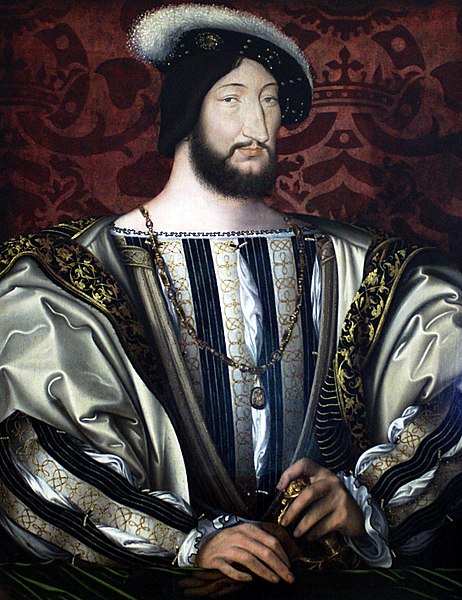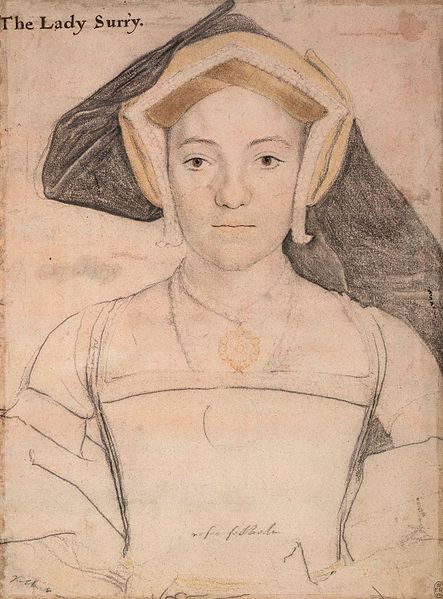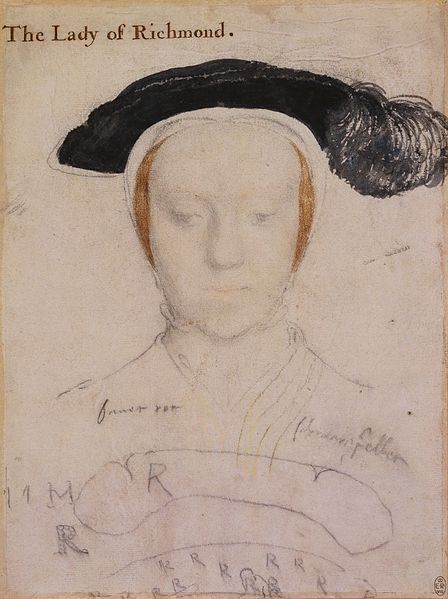 |
| Francois I |
To France
Fitzroy
lived at Windsor castle from 1530 until October 1532 when he and Surrey
travelled in Henry’s train to Calais and Boulogne to meet François I. Fitzroy was a member of a party
that included almost every nobleman of note in the country. Chapuys informed
his master that it was planned for Fitzroy to stay in France while Henri d’Orléans visited England.
Henry
travelled with Anne Boleyn, who was accoutred as if the reigning queen, while
Queen Catherine had been deserted the previous summer at Windsor. The party set
sail on 11th October 1532. Fitzroy had 40 attendants travel with
him. Fitzroy was left in Calais when Henry travelled on to Boulogne to meet
with François[i]. When the two kings
travelled back to Calais it was Fitzroy who met them at the town’s edge.
Henry hosted
an extraordinary meeting of the Order of the Garter and Fitzroy was sat next to
the guest of honour, François. The two kings vied to outdo each other in a miniature version of the
Field of the Cloth of Gold, while their ministers attended to the business of
the summit.
When François left
Calais he took with him Fitzroy and Surrey; the two boys were left in François’ care for a year.
‘The King of England
yesterday gave unto the King his bastard son, who is a child of fifteen or
sixteen years[ii],
and the same day he gave him a present of six horses.’[iii]
Fitzroy
struggled to find a home for the servants who had accompanied him to France,
but were not to travel on to Paris. The party left in the second week in
November; Fitzroy was housed in the dauphin’s lodgings and he dined with the French princes.
 |
| The Dauphin Francois |
At the French Court
In January
1533 the dauphin, François, arranged a tournament in Fitzroy’s honour. Fitzroy
and Surrey were part of circle around the French princes that included the
scions of the houses of Lorraine, Bourbon, Cleves and Guise. The French princes retained fond memories of Richmond,
lamenting his death at a banquet years later. According to Sir John Wallop, the ambassador to the French court; Prince Henri;
‘Began to speak of my lord
of Richmond, lamenting his death greatly, and so did mons
d’Orleance[iv]
likewise.’[v]
In the
summer of 1533 François took his court on a progress through France. The queen and the French
princes split off from the main caravan, travelling to Languedoc. Fitzroy and Surrey travelled on to Montpellier in the king’s train.
The
situation in England had changed dramatically; Anne was now pregnant and she
and Henry had married secretly on 23rd January. In April the English
clergy, under the auspices of the new Archbishop of Canterbury, Thomas Cranmer, agreed that Henry’s marriage to Catherine was unlawful. Henry
was still hopeful that Pope Clement VII would rule in his favour, but the
ruling of 11th July 1533 was not what Henry wanted to hear[vi].
 |
| Arthur Plantagenet |
He’d sent
Norfolk to France to meet with François, in an attempt to have the French pressurise
Clement over the divorce. François was not prepared to dance to Henry’s tune and following
Clement’s ruling Henry precipitately recalled Norfolk from Lyons and Fitzroy and Surrey from Puy.
whence they had accompanied François. The official reason for the recall was the matter
of Fitzroy’s marriage.
Fitzroy,
Norfolk and Surrey formally took their leave of François in Montpellier
on 25th August. Norfolk was back in England by 30th
August. Fitzroy and Surrey’s journey home was more leisurely; they arrived in
Calais on 25th September. While there the two boys were entertained
by Fitzroy’s great-uncle Arthur
Plantagenet[vii], Lord
Deputy of Calais.
In England
Anne had disappointed Henry early in the month by giving birth to a daughter,
the Princess Elizabeth. Princess Mary was now informed that
she would no longer be able to call herself Princess and was to be known as
Lady Mary. Mary’s strong reaction to the news provoked her father into
disbanding her household. Now she and Richmond were on a par, both being
regarded as illegitimate children of the king.
The Babes in the Wood
 |
| Frances de Vere |
In 1531 Anne, in conjunction with her uncle Norfolk, had arranged
the marriage of Surrey to Frances de Vere, daughter of the Earl of Oxford. At the same time Surrey’s sister Mary’s marriage was arranged to Fitzroy. Norfolk
claimed that the marriage was Henry’s idea; Norfolk had his eyes on Lord Bulbeck, the Earl of Oxford’s heir. But he
told Chapuys;
‘The King wishes the Duke
[Fitzroy] to marry one of my daughters.’[viii]
The couple
were engaged in the spring of 1531. By the time they were married Fitzroy was
14 and Mary was the same age; they were related within the bounds of consanguinity. Dispensation for Mary and Fitzroy to marry was granted in
November 1533 and the wedding took place on 26th November 1533 at Hampton Court.
Mary had
been at court for several months, attending upon the new queen. She had carried
a chrism of ‘pearl and stone’ at
Elizabeth’s christening. The married couple were not expected to live together
until they were sexually mature. Mary returned to her role as a member of the
queen’s household while Fitzroy returned to his position at court.
 |
| Mary Howard |
Norfolk did
not have to provide Mary with a large dowry when she married the king’s son;
Henry had passed up on the chance to strengthen ties with a foreign court with
Fitzroy’s marriage, which strengthened the Howard family’s grip on power.
Like her
cousin Anne, Mary had a sharp tongue and a wilful character. These attributes were
offset by her beauty and intelligence; ‘too
wise for a woman’ her father called her. Mary was also strongly opinionated
and not easily swayed. Wisely she rarely exposed anyone bar her exasperated
father to her tempestuous temper.
In March
1534 Henry caused the Act of Succession to be passed by parliament. The act
made the Princess Elizabeth heir to the throne, by declaring that the former Princess,
now Lady Mary, was illegitimate.
An Interlude in Ireland
 |
| Earl of Kildare |
In Ireland
Skeffington had suffered from a lack of support; especially from the Earl of
Kildare who did his best to discredit Skeffington. Kildare curried Fitzroy’s
favour, giving him a horse worth £8[ix].
Kildare gave Norfolk gifts too and in July 1532 Skeffington was replaced by
Kildare. But Kildare’s nemesis was to prove the Earl of Ossory[x], who added to the prevailing unrest
in Ireland.
Cromwell
proposed that Fitzroy be sent to rule over the country he had been made Lord
Lieutenant of. Cromwell was attempting to change the governance of Ireland.
Fitzroy regularly solicited Cromwell’s support but Norfolk had no intention of
allowing his son-in-law to brave the wild domains across the sea. Chapuys
reported;
‘Amongst other accusations
which Cromwell brought on that occasion against the Duke [Norfolk], one
was….his wishing to keep the Duke of Richmond near him, and near his daughter.’[xi]
The two
politicians fell out and in any event Henry was loath to risk his son in a
region whose volatility was a byword. Henry was also unwilling to pay for the
magnificent household Fitzroy would require and that Henry felt he owed to his
own amour propre. If Henry had
supported the idea, that wily politician Norfolk would not have risked his own
career in an attempt to block the plan.
Eventually
Skeffington was given his old job back; but even in 1535 some of the Irish
chieftains were hoping that Henry would send his son over to stop the troubles.
Skeffington died at the end of the year and he was replaced by Henry’s cousin, Lord Grey.
Bibliography
The Ebbs and
Flows of Fortune – David M Head, University of Georgia Press 2009
House of
Treason – Robert Hutchinson, Phoenix 2009
Henry VIII –
Robert Lacey, Weidenfeld & Nicholson & Book Club Associates 1972
The Earlier
Tudors – J D Mackie, Oxford University Press 1992
Bastard
Prince – Beverley A Murphy, Sutton Publishing 2001
Rivals in
Power – David Starkey, MacMillan London Ltd 1990
The Six
Wives of Henry VIII – Alison Weir, Pimlico 1992
The Lost
Tudor Princess – Alison Weir, Vintage 2015
www.wikipedia.en
[i]
The kings had agreed that François
would entertain Henry in Boulogne and then Henry would host François’ visit to Calais
[ii]
The French chronicler got Fitzroy’s age wrong; he was only thirteen
[iii]
Bastard Prince - Murphy
[iv]
By this time Prince François
had died and Prince Henri was the heir apparent. His dukedom of Orléans had been passed on to his
brother Charles formerly Duc d’Armagnac
[v]
Bastard Prince - Murphy
[vi]
Failure to take Catherine back as his wife would result in Henry being
excommunicated
[vii]
Coincidentally another Arthur
Plantagenet had been Earl of Richmond as
well as Duke of
Brittany and at one time had been heir presumptive to Richard I
[viii]
Bastard Prince - Murphy
[ix]
In 2015 the relative: real price of that commodity is
£4,894.00 labour value of that commodity is £44,540.00 income value of that commodity is
£152,100.00 www.measuringworth.com
[x]
Formerly Earl of Ormond, which title had been given by Henry to Anne’s father
Thomas; see The
Importance of Being Thomas V.
[xi]
Bastard Prince - Murphy
Since Henry seemed happy to legitimise and illegitimise his children at will - Elizabeth could not really be called legitimate, not legally - I have always found it hard to understand why Fitzroy was not legitimised.
ReplyDelete